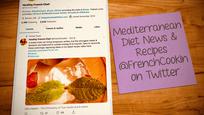Taking the Hell out of Healthcare
Thrive with True Inspiration Using these Important Leadership Ideas and Skills
by Angeline Pacy on 11/14/18
Why adopt healthier leadership styles and management culture? What’s in it for YOU? For starters, it improves outcomes! An unethical or toxic leadership style may be conventional, but often leads to destruction. You don’t have to look long to find that the news headlines are filled with stories of resignations, firing, closures, and layoffs that are a direct result of toxic management. The inferior leadership style examples described below create a toxic energy (company, community, and family culture) that propagates errors, rather than improving outcomes. Read more to discover healthy and unhealthy leadership skills and practical tools that you can adopt today (or thankfully leave behind)…
In these next sections, I describe the concept of “driven” leadership and “driven” personality types versus truly motivated (and inspirational) leadership and personality types. What are the differences between “driven” leaders and “inspired” leaders and management style?
As a general observation, “driven” leadership styles and personality types primary operate within what neuroscientists describe as the “Fight or Flight Response.” This comes with specific qualities (outlined in more detail below).
In contrast, truly motivational leadership and inspired personalities operate in a more balanced way, moving fluidly between the “Relaxation Response” and the “Fight or Flight Response” as situations demand (and are appropriate). What does this translate into tangibly?
Achievement-Oriented or “Success-Driven” Leadership Exhibits the Following Signs:
- Self-seeking behavior, primarily operating for self-benefit, adopting the “do-me first” philosophy rather than acting on behalf of the betterment of the whole group
- Neuroticism, working to achieve success at any and all costs (legal or illegal), overlooking human rights issues, worker safety, healthy boundaries, and work-life balance, even making irrational self-sacrifices at the cost of personal and worker health, family, and personal obligations
- Adopting an “Ends Justify the Means” attitude to not just “tighten up the belt” but cut corners for short-term benefits, arbitrary milestones and appearances of success (sometimes illegal or morally questionable)
- Shame and fear-based motivation, operating from the standpoint of lack rather than abundance, a doom-and-gloom attitude that deflates others rather than uplifts and encourages others.
- Aggressive or passive-aggressive communication style and behavior adopts controlling behavior and procedures such as manipulation, embarrassment, and humiliation, while shaming, isolating, or alienating others inappropriately; utilizes sarcasm as a means of communication
- Hasty decision making (‘trigger happy’) is characterized by a lack of mindfulness. This lack of mindfulness does not take into account long-term consequences; does not carefully plan ahead; often takes on too much responsibility without delegation
- Routinely does not consider the insights, experience, opinions of others
- A lack of responsibility and ownership for mistakes or poor communication, blaming others, allots as much or more time to covering mistakes instead of preventing mistakes
- Taking too much credit, without acknowledging the vital contributions of others (big or small) that create overall success
- Unhealthy criticism, using overly critical language, overly inflammatory or dramatic, or frames criticism poorly, using blanket phrases like “you ALWAYS do this…” which ensures alienation of the listener and is often unbalanced (simply not true)
- Unreasonable expectations that instigate “a fight or flight response” culture that is higher stress than healthy or necessary
- Focuses too much energy or resources in job justification or gossip
- Inability to connect with staff, picking favorites, building cliques rather than building bridges
Truly Motivated and Inspired Leadership Styles and Personality Types Demonstrate:
- Healthy boundaries with self and others
- Frames criticism respectfully and positively, using “the sandwich method” that first introduces both successes, areas that need improvement, and finishes on a positive message
- Continues education in healthy communication areas to adopt positive communication skills and reinforce good habits
- Leadership has a team- or community-oriented emphasis for better collaboration, inclusion, unity, and high group and employee-satisfaction
- A strong value and skill-set in delegation that seeks to discover the talents and limitations of self and others; delegates tasks to appropriate individuals (not punishing or overly-criticizing others who are not properly trained or naturally skilled in a task, re-assigning duties as appropriate)
- Effective coping skills for stress management such as good self-care, work-life balance; expanding healing modalities for stress; observing labor laws
- Reasonable expectations set reasonable timelines and goals for self and others; abides by laws (including labor laws and environmental laws)
- Utilizes a positive reward system for self and others, such as healthy rewards and activities for project milestones and achievements, because it propagates positive behavior and reinforces behavior change
- Utilizes mindfulness skills which consider the consequences of actions and feelings of self and others
- Leads by example, by keeping a humble, gentle servant’s heart; removes ego; does not expect more out of employees and others than what they are willing to do themselves
- Takes ownership and responsibility for mistakes and behaves honestly and forthright
- Makes amends to others, self, and community as appropriate
- Practices patience with self and others, implementing good "pacing" skills
- Uses conflict-resolution and crisis-prevention tools; adopts an intelligence-over-emotion attitude
- Celebrates individuality and diversity, conveying a healthy minimum standard of respect and tolerance for natural differences and reasonable and appropriate self-expression
- Celebrates cultural and emotional intelligence (CQ and EQ, respectively), not just IQ
- Clearly communicates and outlines practices, expectations, and company culture to prevent confusion and reduce embarrassing situations
Conclusions
Effective leadership requires plasticity in attitudes and thinking. We must never grow:
- Completely comfortable
- Completely self-satisfied
- Assess and re-assess self, staff, partners, relationships on a regular basis to discover what is and is not working
- Engage in life-long learning, training, coaching, and mentoring
Adopting healthy coping skills is a daily, life-long process that creates motivational leaders, healthy groups, and pleasant environments. To make this a lifestyle rather than a pop-psychology fad, seek-out self-development and training resources that don’t just focus on achievement-oriented life-skills, or conventional appearances and perceptions of success. Instead, seek out motivated communities that inspire and train-up leaders for lasting, positive change!
Quality leadership resources can be found online and through networking. Wellness and behavior change coaches and advisors can be an important resource for inner-development. Some spiritual and leadership organizations, that work for healthy (balanced) personal development, and also for the common good, provide inspirational leadership training. They mentor leaders and also help members to develop effective communication tools.
Don’t just get inspired to be a leader. Be an inspiration to your world today!
Quick and Easy Tips for Boosting Energy
by Angeline Pacy on 07/09/16When someone I love (or a client) tells me that they feel exhausted, I can't help but inspire and motivate them. As a road-warrior and wellness-victor, I keep a handy energy mental checklist of favorite energy bursting tips. Discover some of them right here for FREE!
Am I thirsty?
Remember to keep hydration drinks low in sugar and artificial ingredients (whether in the form of table sugar, fructose from juice or high-fructose corn syrup). Recognize that what goes up (blood sugar) must come down (and sometimes comes crashing down and that can create an energy slump and lead to diabetes). Some glucose is good. A lot can be dangerous and lead to chronic health problems.
Immunomodulation: hot or hype?
by Angeline Pacy on 02/28/15






